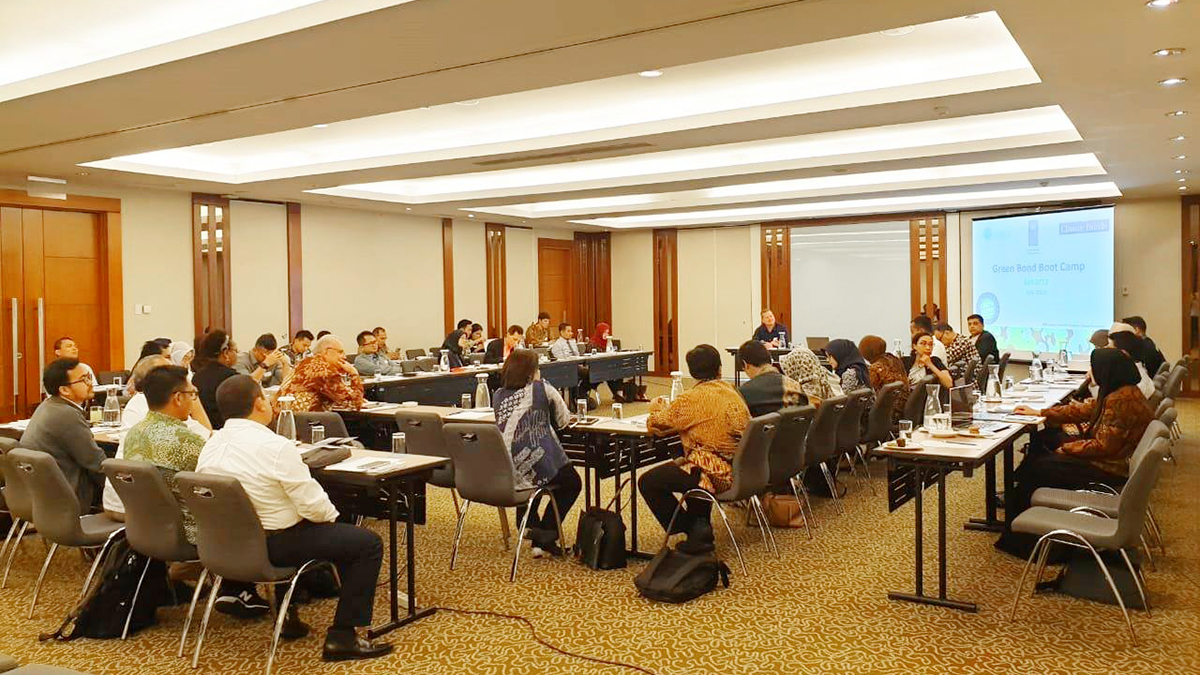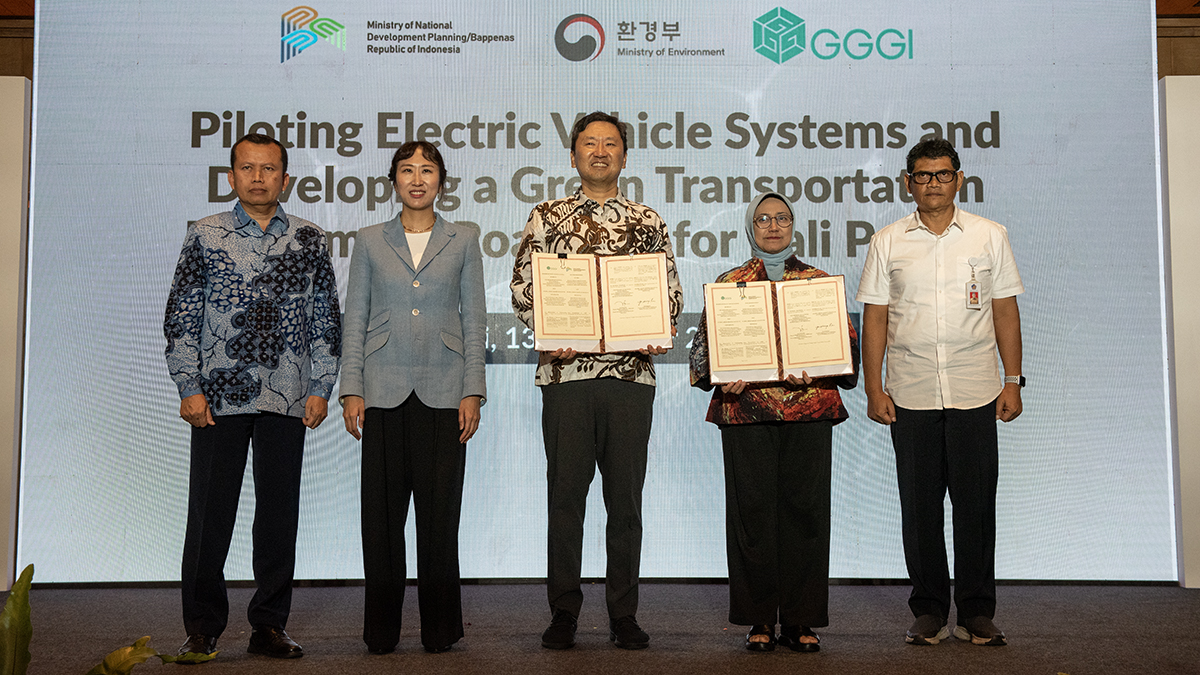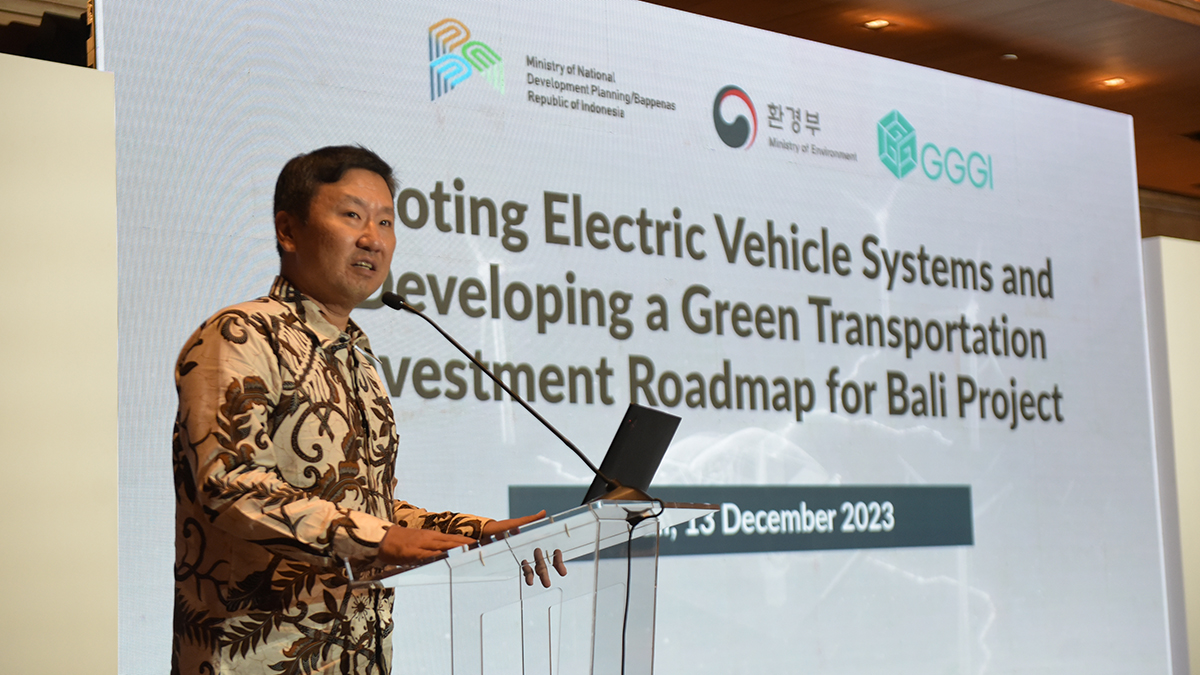Green Bond Bootcamp in Jakarta
On July 22-23, 2019, the Ministry of National Development Planning (Bappenas) in cooperation with GGGI and the United Nations Development Programme (UNDP) held the “Climate Bonds Initiative Green Bond Boot Camp” at Le Meridien Hotel, Jakarta. The Climate Bonds Initiative (CBI) was invited by Bappenas as experts to provide the technical training. The event was the first Bootcamp held in Indonesia.
The Bootcamp aimed to develop alternative funding to achieve the national targets outlined in the National Medium-Term Development Planning 2020-2024 of the Government of Indonesia (GoI). The two-day event was conducted in a workshop format and participated by various stakeholders in development and funding, including PT Sarana Multi Infrastruktur (Persero) or PT. SMI, which is currently working with GGGI to develop green funding for infrastructure projects.
At present, there have been very few green bonds issued in Indonesia’s capital market despite the large market potential. GoI has frequently issued green bonds, with the latest one being a green sukuk issued at the global market with a value of USD 2 billion. The state-owned Bank Rakyat Indonesia also planned to issue green bonds worth USD 500 million in the first semester of this year. However, when we look back, the number of companies issuing green bonds in Indonesia is still relatively low. Thus far, PT SMI and PT Bank OCBC NISP are the only companies that have issued green bonds recorded at the Indonesia Stock Exchange last year, worth Rp 500 billion and Rp 2 trillion respectively.
Green bonds are a well-known instrument in the global market. The instrument has existed since 2007 when the European Investment Bank issued such bond, otherwise called climate awareness bond, with a value of EUR 1 billion. Yet, it has only been in the past 5 years that the trend of issuing green bonds has taken off. This is in line with global investor’s increasing awareness to allocate a part of their portfolios for environmental instruments. Unfortunately, many investors in Indonesia are not familiar with green bonds, hence its lack of demand. Aside from that, many companies in Indonesia are used to issuing conventional bonds. Despite this however, GoI is confident in Indonesia’s large market potential for green bond investment, which also provides an opportunity for the expansion of green bond instruments in ASEAN.




